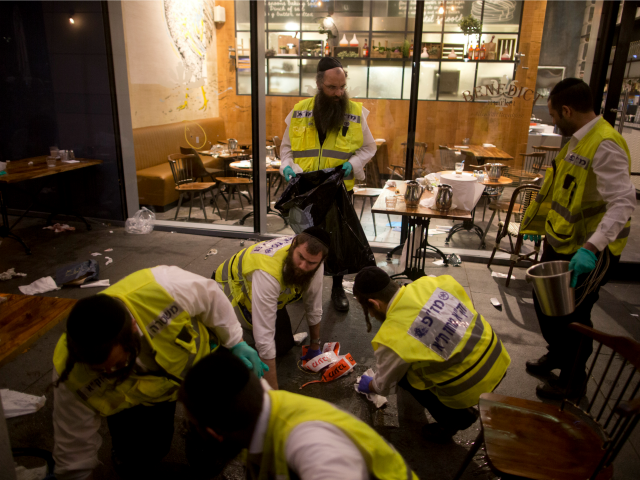TEL AVIV – In the aftermath of the terror attack at Tel Aviv’s Sarona complex, a Palestinian columnist writing in the London-based daily Al-Hayat condemns the methods of Palestinian armed resistance, claiming that even though attacks like the one in Tel Aviv have elements of “heroism and sacrifice,” they ultimately do more harm than good in advancing the Palestinian cause.
In his Sunday column translated by the Middle East Media Research Institute (MEMRI), Majed Kayali posits that so-called “lone wolf attacks” against Israelis in recent months expose a lack of strategy on the part of the Palestinian leadership and only result in delegitimizing the Palestinian struggle.
“It is interesting that our collective mind, which relies on emotions, slogans, and sanctifying the armed struggle, forgets, in those moments of enthusiasm and vengeance, the lessons learned from the past and the heavy toll that we have paid, without obtaining the desired benefits from operations like this and with a disproportion of victims versus achievements,” he writes.
Proclaiming that while the shooting attack in Sarona in which four people were killed is a “natural response” to the “arrogant and racist Israeli policy,” its isolation from any political context only serves to hinder the Palestinians because it gives Israel the opportunity to take countermeasures.
“With regard to the moral aspect, it can be said that the imperialist, racist, and usurping Israel is responsible for everything that happens to the Palestinians – their frustration, and their sense of oppression and rage. But this operation, which targeted civilians, damages the credibility of their struggle.”
Kayali goes on to note that Palestinians are benefiting from increased sympathies from the international community, attested by the gathering momentum of the boycott movement. “It can be assumed that [the Palestinians] have become more aware of, and sensitive to, this issue [of preserving credibility], in light of the increased sympathy worldwide for [the Palestinian] problem and rights, and the increased calls to isolate Israel and boycott it politically and culturally in Europe, and even in the U.S.”
The leadership, Kayali asserts, welcomes the acts of terror by individuals if only to “cover up their own helplessness.” He condemns the acts for being “unrelated to any political solution” and proving that “the Palestinians’ armed struggle activity is random and depends on mood and on trial and error.”
Against a backdrop of turmoil in the Arab world, Kayali highlights the threat of Israel’s retaliation to random acts of terror against its civilians.
“We have already seen the world’s lenience towards the regime of Bashar Al-Assad, who killed hundreds of thousands of his own people, destroyed their homes, and drove out millions. How will this world act against Israel, if it only did to the Palestinians a quarter of [what Assad did to his people]?”
In Kayali’s estimation, the Second Intifada from 2000-2004, in which Palestinian terrorists blew up cafes and buses, damaged the Palestinians considerably because Israel retaliated by erecting a security fence and setting up more checkpoints.
“I do not mean to say that the Palestinians should give up the struggle and surrender. But they must know which form of struggle is most effective – like the First Intifada, for example – and must balance cost and benefit, and wear down their enemies, rather than becoming worn down themselves,” he writes.
Kayali concludes that the way forward is for Palestinian society to first rehabilitate itself. To restore consensus and rebuild stable political entities in order to formulate a political vision with a method of struggle that befits Palestinian capabilities, one that does not “allow Israel to use its unrestrained force to wear down and dismantle Palestinian society.”

COMMENTS
Please let us know if you're having issues with commenting.